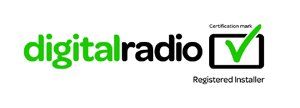An introduction to fleet monitoring
The term fleet has a few different meanings, but when it comes to managing vehicles, typically the definition refers to all of the company’s vehicles. A fleet is a group of vehicles owned by an organization, or business, used for business purposes. A vehicle can be considered part of a fleet, whether it belongs to one person or several people, as long as the vehicle serves a single purpose and has similar uses. A commercial fleet can be made up of company cars, trucks, vans, or buses.
The fleet industry is a growing and competitive one. Fleet managers always want to reduce the cost of their fleet while simultaneously increasing their company's return on investment (ROI). One of the most effective ways to do this is through fleet monitoring or fleet management.
What is fleet management?
Fleet management is the process of overseeing the day-to-day operations of a fleet and ensuring it operates smoothly. Fleet management represents the intersection between physical assets, people, processes, and technology.
Fleet management is a digital solution for managing, controlling, and monitoring your fleet. Fleet management helps the fleet operator to monitor vehicle location, driver behavior, the health of the vehicles, mileage, and fuel consumption by using the latest technologies such as telematics devices and advanced analytics. It makes it easy to keep track of the entire fleet and gives insights into how it is performing in real-time.
This can help fleet operators make decisions on how best to use their assets as well as save money in the long run by preventing unexpected vehicle breakdowns or accidents from occurring.
What is the purpose of fleet management?
The purpose of fleet management is to monitor and improve performance and efficiency as well as increase operating efficiencies for a company’s fleet. A good way to do this would be by using software that provides real-time insights into one’s operations which will help with making changes needed for improvement, such as allocation of resources, changing routes, and reducing emissions.
Fleet managers are responsible for making sure that all vehicles under their care are running at peak performance every day. This includes fuel consumption, vehicle maintenance, driver training, and more. Successful fleet management can also reduce accidents by promoting safety measures for drivers such as speed limit enforcement or alerting drivers when they deviate from their original route plans.
Fleet management is a complex process that requires careful attention to every detail. With the right tools, fleet managers can streamline their workflow and ensure they have everything necessary for success.
SmartFits provides a wide range of products and services that can help keep your vehicle running smoothly, such as
commercial vehicle camera systems, IoT platforms, GPS vehicle tracking devices, parking assistance, and driver behavior tools.
If you are interested in learning more about the many ways we can help make your fleet safer,
check out our website for a detailed overview of all our products and services.











